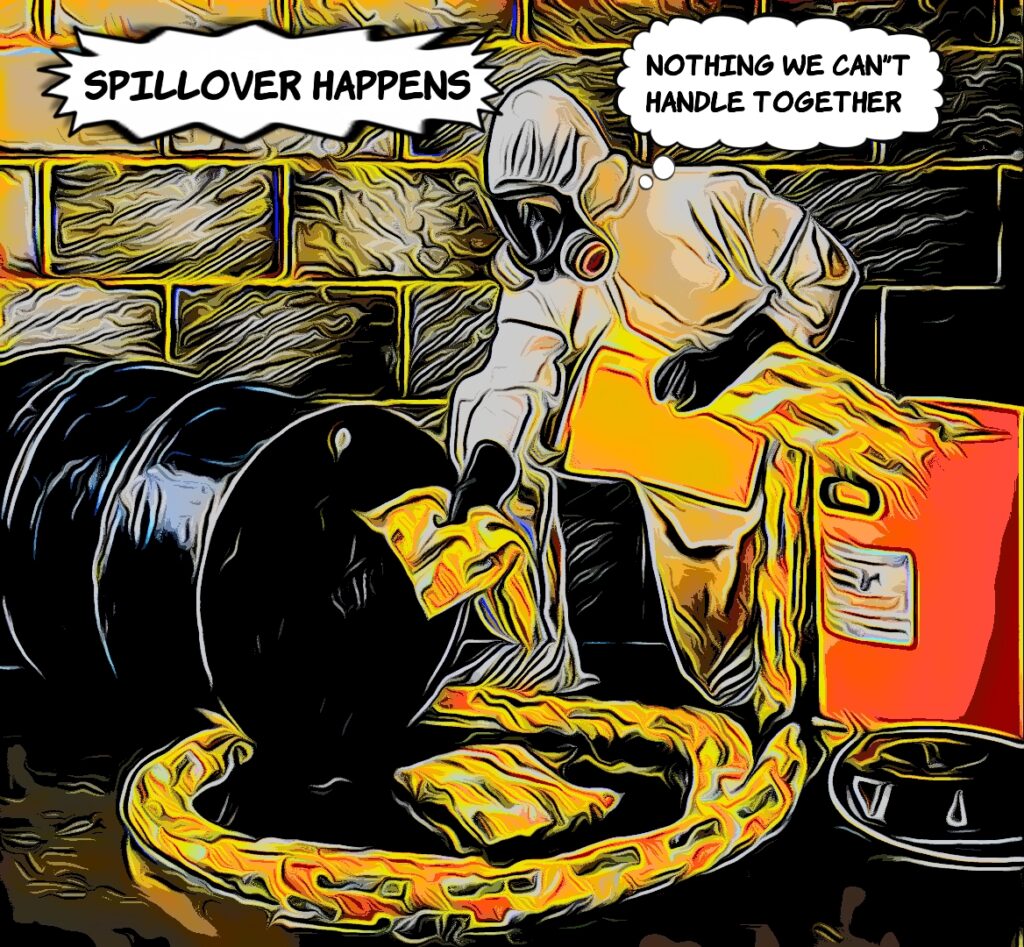How will you respond?

Let’s discuss spillover for a moment.
You’ve heard about work-life balance, right?
Well, part of that concept rests on Spillover theory, which argues that these microsystems can and do impact each other – for good and for bad.
One of the roles of leadership is recognizing when spillover is negatively impacting productivity. But it isn’t enough to just acknowledge spillover.
Unfortunately, I’ve met team leaders who were excellent at recognizing the effects of spillover. Then they call out their team member (sometimes publically) about how their work isn’t up to snuff or how they need to focus better when they are at work.
They demand no spillover in the belief they are setting healthy boundaries. Instead, they are creating a toxic environment. where team members hide spillover. And that is far more dangerous.
One of the signs of a superb leader is helping followers effectively manage spillover. And know what’s going on outside of work.
And here’s the thing. Spillover isn’t unidirectional. It isn’t just Home –> Work. It is also Work –> Home.
Exceptional leadership sees when spillover is taking place and puts into place systems to help workers manage spillover.
Sometimes that means setting and enforcing rules about downtime and no email weekends. Sometimes it means team members covering for each other when someone needs to leave early cuz something outside the work environment, their kid or spouse or dog or whatever, is impacting their ability to focus and get the job done.
Sometimes it means changing the culture of the institution. Sometimes it means standing up for a worker has hasn’t been able to meet their quota because life happens. And sometimes it means taking the hit, because the leader knows what the team members are going through right now.
It means recognizing that we shouldn’t have to balance between life and work.
Spillover theory recognizes that our work is not the totality of our life. And that work can impact our home as much as our home can impact our work.
Exceptional leaders know when to kick their teams out the door and tell them to go spend time with their kids. That the work will still be there tomorrow. And that they should enjoy this special time as their kids grow up before they grow old. Or to help their kid with their newborn grandchild.
And nowadays, with Corona and WFH, spillover is an extreme influence on productivity. But knowing that doesn’t mean leaders get to ignore boundaries. On the contrary. It is even more imperative for leadership to help workers set boundaries that keep negative spillover to a minimum and maximize the potential for positive spillover.
Leaders who recognize the impact of spillover will make every effort to have work be a positive influence on their people’s home life – even if they are working from home. While it doesn’t guarantee a similar reverse influence, it does certainly improve the likelihood of that occurring.


